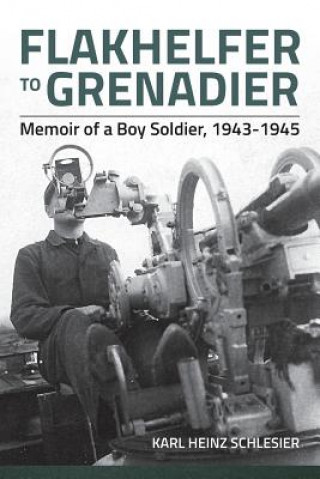
Kód: 05029616
Flakhelfer to Grenadier
Autor Karl H. Schlesier
On January 7 1943, the German Government, in order to free adult soldiers for frontline duty, ordered that all male students of secondary schools born in 1926 and 1927 be drafted into anti-aircraft service in the homeland. Student ... celý popis
- Jazyk:
 Angličtina
Angličtina - Vazba: Brožovaná
- Počet stran: 184
Nakladatelství: Helion & Company, 2014
- Více informací o knize

613 Kč
Dostupnost:
50 % šance Máme informaci, že by titul mohl být dostupný. Na základě vaší objednávky se ho pokusíme do 6 týdnů zajistit.
Máme informaci, že by titul mohl být dostupný. Na základě vaší objednávky se ho pokusíme do 6 týdnů zajistit.Prohledáme celý svět
Mohlo by se vám také líbit
-

Essential Amory Lovins
1162 Kč -

Color for Fun Adult Coloring Book
322 Kč -

Approaching The Future
485 Kč -

Die Flakhelfer
308 Kč -

Astronomie Spherique. Premier Fascicule
510 Kč
Darujte tuto knihu ještě dnes
- Objednejte knihu a zvolte Zaslat jako dárek.
- Obratem obdržíte darovací poukaz na knihu, který můžete ihned předat obdarovanému.
- Knihu zašleme na adresu obdarovaného, o nic se nestaráte.
Informovat o naskladnění knihy
Zadejte do formuláře e-mailovou adresu a jakmile knihu naskladníme, zašleme vám o tom zprávu. Pohlídáme vše za vás.
Více informací o knize Flakhelfer to Grenadier
Nákupem získáte 61 bodů
 Anotace knihy
Anotace knihy
On January 7 1943, the German Government, in order to free adult soldiers for frontline duty, ordered that all male students of secondary schools born in 1926 and 1927 be drafted into anti-aircraft service in the homeland. Students were to arrive in batteries on February 18 1943. After serving from one year (those born in 1926) to thirteen months (those born in 1927), the boys were transferred into the Reich Labor Service and from there into the armed forces. They were replaced by boys born in 1928 who served to the end of the war. About 200,000 boys became Flakhelfer. Most were called up at sixteen, but many, like the author, Karl Heinz Schlesier, were only fifteen. The boys served in batteries of light and heavy flak. Although the government insisted school programs continue for Flakhelfer, the effort was a sham, especially where heavy bombing occurred. Schlesier, a student of Rethel Gymnasium in Dusseldorf, served as Flakhelfer in the regions that suffered the most numerous and heaviest air raids of the war in the Rhineland (Dusseldorf) and the Ruhr (Recklinghausen). His is a coming of age story in a world gone mad, where a teenage boy launched shrapnel into a sky filled with bombers, where Christmas-tree-like flares marked cities about to burn, where working beside Russian POWs, protecting industries with slave labor, courting a girl among bombed-out ruins, and spending leave with family hiding in claustrophobic bomb shelters was unremarkable, as was finally being thrown, unprepared, into a disintegrating frontline only fifty kilometers from his childhood home. The memoir is based solely on Schlesier's diary notes and memories of that period. He has consciously avoided including what he learned after the war. His views, opinions, and interpretations of events are from inside the Germany of that time. If some are inconvenient today, they mirror the chaos of the world he experienced. Then, to live or not to live was accidental. Schlesier wrote this memoir as an old man in response to a granddaughter's question about what he did in the war. This is his answer. Perhaps, he also gives a voice to the silent generation of boys born in Germany in 1926 and 1927. This generation has been silent because the horror it knew pales in comparison to the horror of the Holocaust.
 Parametry knihy
Parametry knihy
Zařazení knihy Knihy v angličtině Humanities History Military history
613 Kč
- Plný název: Flakhelfer to Grenadier
- Podnázev: Memoir of a Boy Soldier, 1943-1945
- Autor: Karl H. Schlesier
- Jazyk:
 Angličtina
Angličtina - Vazba: Brožovaná
- Počet stran: 184
- EAN: 9781909384989
- ISBN: 1909384984
- ID: 05029616
- Nakladatelství: Helion & Company
- Hmotnost: 249 g
- Rozměry: 234 × 156 × 10 mm
- Datum vydání: 03. July 2014
Oblíbené z jiného soudku
-

With the Old Breed
205 Kč -

SS Dirlewanger Brigade
308 Kč -

Mediterranean Air War, 1940-1945
1520 Kč -

Wars of the Roses
386 Kč -
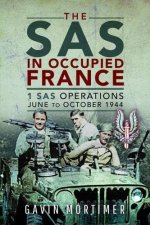
SAS in Occupied France
677 Kč -
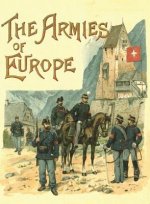
Armies of Europe Illustrated
705 Kč -

Soviet Cruise Missile Submarines of the Cold War
479 Kč -

Black Prince And The Sea Devils
1025 Kč -

Truth About The Wunderwaffe
1126 Kč -

Kill Anything That Moves
437 Kč -

Helmet for my Pillow
357 Kč -

Forgotten Highlander
357 Kč -

TM 9-803 Willys-Overland MB and Ford Model GPW Jeep Technical Manual
436 Kč -

With the Old Breed
410 Kč -

Sleepwalkers
514 Kč -
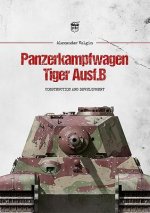
Panzerkampfwagen Tiger Ausf.B
810 Kč -
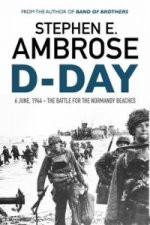
D-Day
276 Kč -

War that Ended Peace
276 Kč -

Second World War
787 Kč -

Band Of Brothers
254 Kč -

American Sniper
303 Kč -

Battles Map by Map
804 Kč -

Brothers in Battle, Best of Friends
382 Kč -

Eastern Approaches
357 Kč -

Citizen Soldiers
357 Kč -

Fate is the Hunter
303 Kč -

Shattered Sword
734 Kč -

Panzerjager on the Battlefield
704 Kč -

Fairbairn-Sykes Commando Dagger
437 Kč -

Templars
338 Kč -

Bravo Two Zero
306 Kč -

Military History Book
810 Kč -

Lost Victories
574 Kč -

The Second World War
462 Kč -

Hirohito and the Making of Modern Japan
483 Kč -
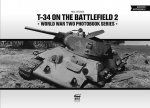
T-34 on the Battlefield. Volume 2
834 Kč -

Reaper
368 Kč -

RAF Battle of Britain Fighter Pilots' Kitbag
464 Kč -

Art of War
306 Kč -

Pacific Crucible
514 Kč -

Soldaten - On Fighting, Killing and Dying
276 Kč -

1914-1918
584 Kč -
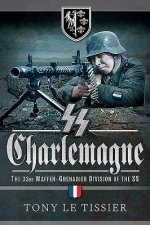
SS Charlemagne
470 Kč -

Between Giants
429 Kč -

German Panzers 1914-18
441 Kč -

War Like No Other
376 Kč -

Winter Uniforms of the German Army
2102 Kč -
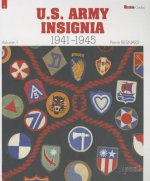
Us Army Insignia 1941-1945 Vol. 1
680 Kč -

Pacific Profiles - Volume Three
796 Kč
Osobní odběr Praha, Brno a 12903 dalších
Copyright ©2008-24 nejlevnejsi-knihy.cz Všechna práva vyhrazenaSoukromíCookies


 Vrácení do měsíce
Vrácení do měsíce 571 999 099 (8-15.30h)
571 999 099 (8-15.30h)